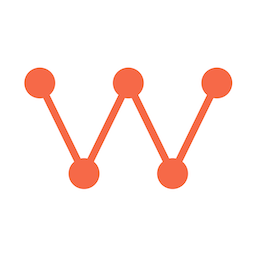Overview
WuKongIM provides a complete REST API interface for managing all aspects of the instant messaging system, including message sending, channel management, user management, conversation management, and other functions.
Important Security Notice: WuKongIM API is designed for internal business systems only. It must not be exposed to external networks to prevent security issues.
Security Considerations
🔒 Internal Use Restrictions
- Internal use only: All API interfaces are for internal business system calls only
- No external exposure: Strictly prohibit exposing API services to public networks or external networks
- Port protection: Must block external network access to port 5001
- Network isolation: Recommended to deploy and use in internal network environments
🛡️ Security Best Practices
- Block external access to port 5001 in firewall
- Use VPN or internal network environment for API calls
- Regularly review network access permissions and logs
- Avoid exposing API endpoint information in public documentation
Server Address
# Internal network environment (recommended)
http://localhost:5001
# Or internal IP
http://192.168.1.100:5001
Authentication Mechanism
WuKongIM API does not require Token authentication because it is designed for internal systems only. All API calls are direct access without additional authentication headers.
API Standards and Rules
📊 HTTP Status Code Standards
WuKongIM API follows standard HTTP status code specifications:
✅ Success Response (200)
- HTTP 200: Indicates successful request execution
- Some interfaces only need to check HTTP 200 status code without parsing JSON response
- Success responses may contain data or just return status confirmation
❌ Failure Response (non-200)
- HTTP 400: Request parameter error
- HTTP 500: Internal server error
Content-Type
All POST requests must use JSON format:
Content-Type: application/json
Request Body Example
{
"channel_id": "group123",
"channel_type": 2,
"from_uid": "user123",
"payload": "SGVsbG8gV29ybGQ="
}
Success Response Example
{
"message_id": 123456789,
"message_seq": 1001,
"client_msg_no": "client_msg_123"
}
{
"msg": "channel_id parameter cannot be empty",
"status": 400
}
Documentation Note: This documentation only shows parameter descriptions for success responses. Error response format is unified as shown above.
Core Data Types
📁 Channel Type (channel_type)
| Value | Type | Description |
|---|
| 1 | Personal Channel | One-on-one private chat channel |
| 2 | Group Channel | Multi-user group chat channel |
📱 Device Flag (device_flag)
| Flag Value | Device Type | Description |
|---|
| 0 | App | Android, iPhone, iPad devices |
| 1 | Web | Browser, Web applications |
| 2 | Desktop | Desktop applications |
{
"payload": "SGVsbG8gV29ybGQ=", // Base64 encoded message content
"from_uid": "user123",
"channel_id": "group123",
"channel_type": 2
}
🔑 Important Parameter Specifications
channel_id Usage Specifications
- Direct use:
channel_id parameter should be used directly without adding @ prefix
- Correct example:
"channel_id": "group123"
- Incorrect example:
"channel_id": "@group123"
Do not add @ symbol before channel_id parameter, use the original ID value directly.

